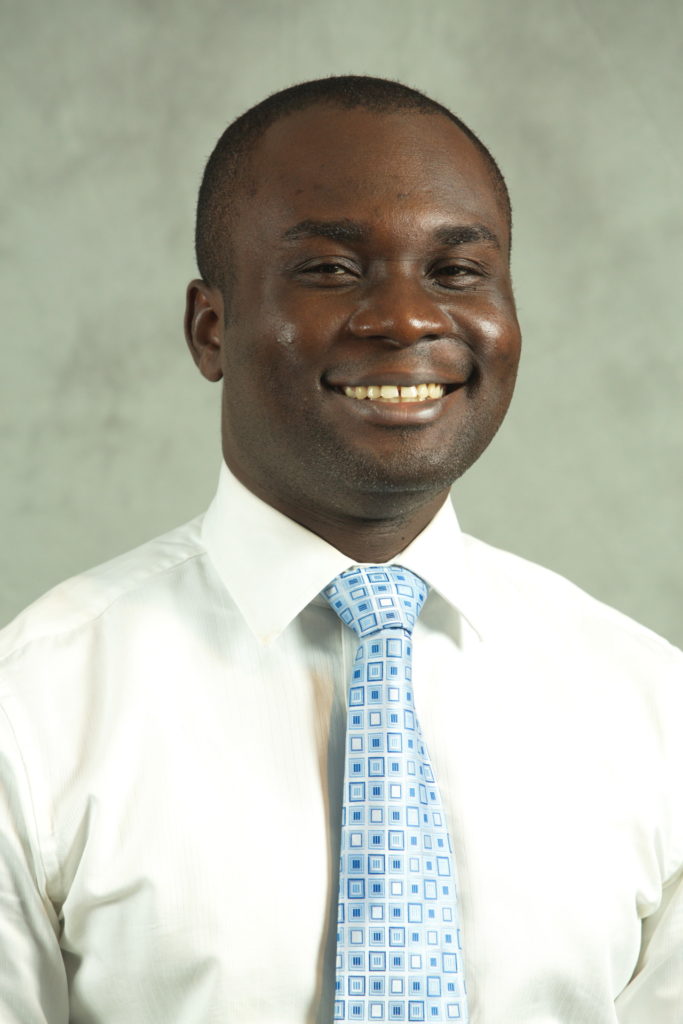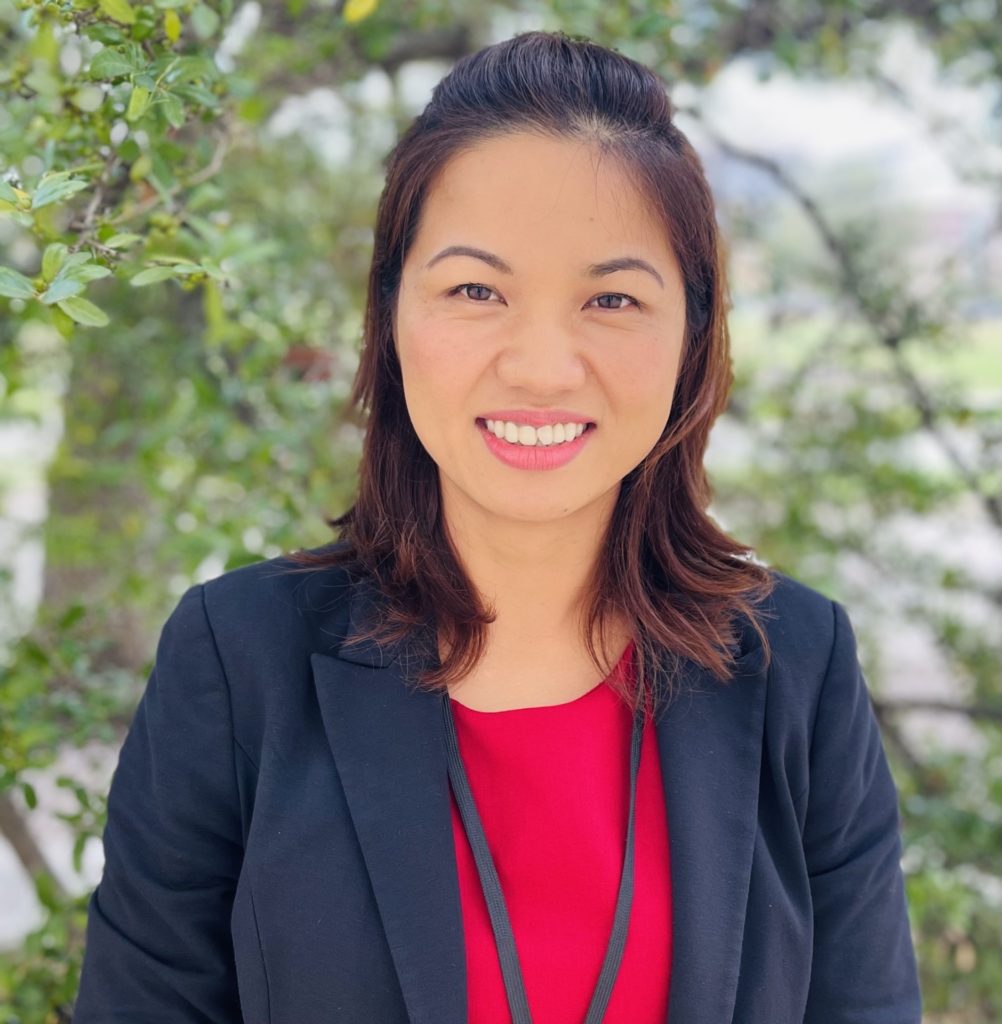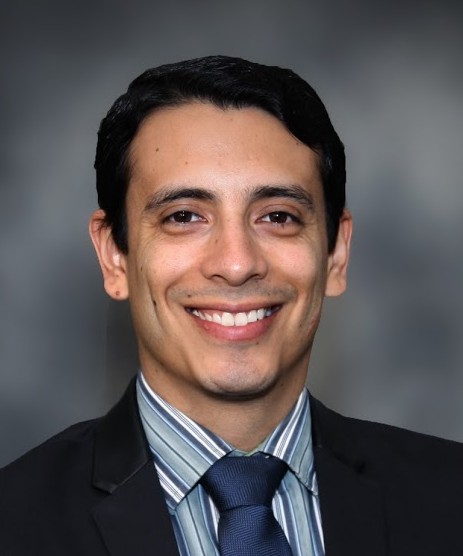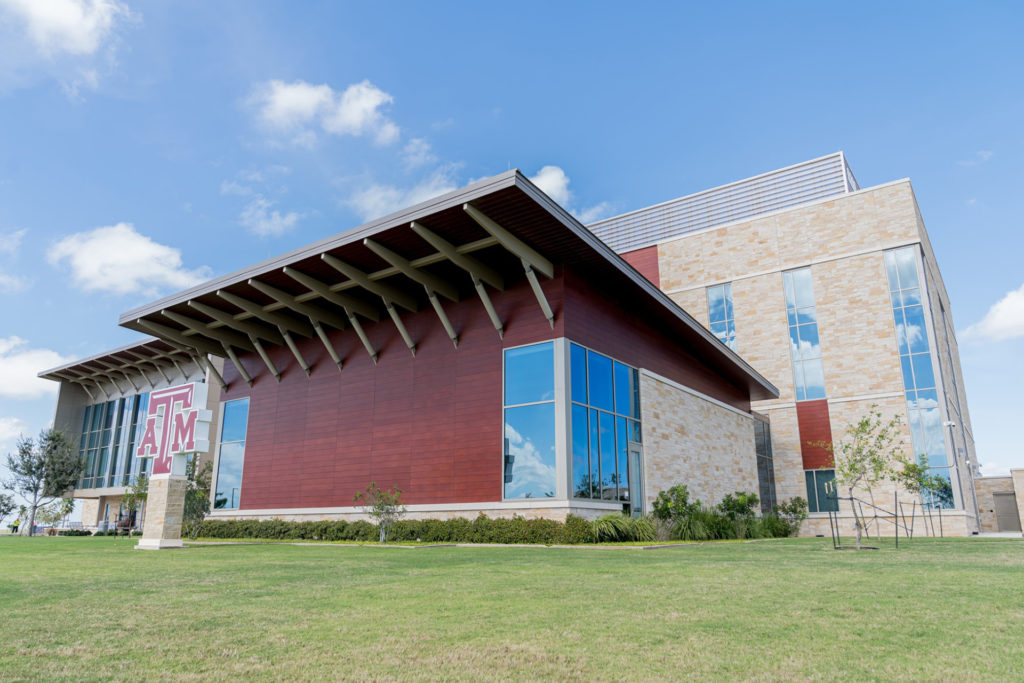Texas A&M expands agricultural economics educational reach into Rio Grande Valley
Professors selected for undergraduate instruction at Texas A&M University Higher Education Center
The Department of Agricultural Economics at the Texas A&M College of Agriculture and Life Sciences is helping meet needs and address challenges for agriculture and agribusiness in the Rio Grande Valley by selecting a key group of professors to teach undergraduate students at the Texas A&M University Higher Education Center at McAllen.

“The globalization of agriculture, new technologies, advanced nutritional and environmental consciousness, and new U.S. and foreign policies are creating the need for agriculture-related industries to hire graduates with strong backgrounds in applied economics, business principles and leadership,” said Rudy Nayga, Ph.D., head of the Department of Agricultural Economics, Bryan-College Station.
Nayga said whether a student has an interest in business, entrepreneurship, sales, finance, managing natural resources or in government policy, degrees in the department offer the flexibility and knowledge base necessary for employment in a variety of non-agricultural and agricultural industries.
“A large portion of the state’s agricultural production and movement takes place in the Rio Grande Valley,” Nayga said. “We felt it was important that we have a strong presence in this part of the state due to the size and needs of the agricultural community and the volume of agricultural imports and exports that pass through the region. It is also important that we provide educational opportunities for those interested in a career in agriculture, as well as provide research and technical assistance to those who are already involved in agriculture.”
Establishing an agricultural economics undergraduate program
To help develop a more educated and prepared workforce to address the varied agriculture-related and agriculture-adjacent challenges in the Rio Grande Valley, the department established an Agricultural Economics program in the area during 2022. Course instruction takes place at the Texas A&M University Higher Education Center, located in the Tres Lagos community of McAllen. Twenty-one students are currently enrolled in the program, with the goal of doubling that enrollment in the fall.
In the future, the department anticipates offering additional undergraduate degrees at the center relating to finance and real estate, policy and economic analysis, and rural entrepreneurship.
“A reason we brought agricultural economics education to the Rio Grande Valley was that we found many students in the area would like to pursue college locally,” said Dusty Menzies, assistant department head for undergraduate programs in the Department of Agricultural Economics. “Bringing the university to the Rio Grande Valley gives highly qualified students the opportunity to study and find better employment opportunities — opportunities we typically associate with a better education and skill set — in either the Rio Grande Valley or elsewhere.”
Menzies noted that offering undergraduate degrees also allows Texas A&M to reach even more Hispanic students, as Hispanics and Latinos comprise more than 85% of the area’s population.
“We want these students to feel they are part of the Texas A&M family,” said Donna Chester, senior administrative coordinator for the department’s undergraduate program. “When they graduate from the Texas A&M center in McAllen, they can get their Texas A&M class ring and can walk across the stage at graduation ceremonies in College Station if they choose.”
Rising demand for higher education in the Rio Grande Valley
At the Texas A&M Higher Education Center, students have the full weight and backing of Texas A&M University along with the benefits of a small college setting. The programs at the center are rigorous and challenging and offered in an engaging, interactive and focused environment. Students learn in a state-of-the-art facility, with tools and equipment that will help them explore, collaborate and discover.
“Local university enrollment in the Rio Grande Valley has been rising for the past four years and this is a positive sign that the area is responding to an economic environment that rewards higher education and more specialized skills,” Nayga said. “We believe offering agricultural economics-related undergraduate degrees through the center is essential because agriculture has historically been one of the Rio Grande Valley’s cultural and economic mainstays in addition to being an important source of income and jobs in the area.”
Agriculture’s importance to Rio Grande Valley
According to data from the Center for North American Studies, CNAS, a part of the Texas A&M AgriLife Extension Service, the value of agricultural production in the Rio Grande Valley in 2021 was about $663 million. For that same year, the value of the Valley’s major crops – cotton, citrus, vegetables, grain sorghum, corn and sugarcane – was estimated at about $426 million. Additionally, more than 590,000 trucks carrying about 40,000 pounds of fresh fruits and vegetables from Mexico come into the U.S. through entry points in the Valley.
“Mexico, including agricultural imports from that country, will continue to be a dominant factor for the Valley economy, but new business opportunities that may also benefit the Valley could come from other nations as well,” said Luis Ribera, Ph.D., director of the CNAS and AgriLife Extension economist in the Department of Agricultural Economics, Bryan-College Station. “The Central American Free Trade Agreement with Costa Rica, El Salvador, Guatemala, Honduras, Nicaragua and the Dominican Republic will eliminate tariffs and other trade barriers. This will allow them to export items such as coffee, sugar, petroleum and bananas, as well as import machinery and equipment, raw materials, consumer goods, cotton, and fabrics.”
Agricultural economics instructors in the Rio Grande Valley
So far, four Department of Agricultural Economics professors have been identified to provide undergraduate instruction at the Texas A&M University Higher Education Center at McAllen. Ly Nguyen, Ph.D., and Lucas Garcia, Ph.D., have been given full-time teaching assignments at the center. Samuel Zapata, Ph.D., Anthony Baffoe-Bonnie, Ph.D., and a third professor who will soon be hired will teach at the center and conduct research at the Texas A&M AgriLife Research and Extension Center in Weslaco.

— Anthony Baffoe-Bonnie, Ph.D., an assistant professor in the Department of Agricultural Economics, also splits his time between the Texas A&M Higher Education Center at McAllen and the Texas A&M AgriLife Research and Extension Center in Weslaco. He has a bachelor’s degree in economics from Kwame Nkrumah University of Science and Technology, a master’s degree in agricultural and applied economics from the University of Wyoming, and a doctorate in agricultural and applied economics from the University of Georgia.
Baffoe-Bonnie’s areas of expertise in agricultural economics include production economics relating to productivity and efficiency analysis, international agricultural development, and environmental economics.
In 2020, Baffoe-Bonnie received the Outstanding Young Professional Award from the Committee on the Opportunities and Status of Blacks in Agricultural Economics, COSBAE, part of the Agricultural and Applied Economics Association. He currently serves as chair for COSBAE.

— Lucas Garcia, Ph.D., is a Department of Agricultural Economics instructional assistant professor at the Texas A&M Higher Education Center at McAllen. He is currently teaching Introduction to Agricultural Economics and Critical Thinking and Decision Making in Agricultural Economics.
Garcia is also a member of the department’s undergraduate advisory committee and is currently working to expand curriculum and upper-level courses to be taught at the Texas A&M center in McAllen.
He earned his bachelor’s degree in animal science at Department of Animal Science in the Texas A&M College of Agriculture and Life Sciences, his master’s degree in agriculture at Sam Houston State University, and his doctorate in public policy at Walden University, in Minneapolis.
His areas of expertise in the field of agricultural economics include implementation analysis, policy adherence, self-determination theory, mentorship and leadership.

— Ly Nguyen, Ph.D., is an instructional assistant professor of agricultural economics at the Texas A&M Higher Education Center at McAllen. Nguyen joined the Department of Agricultural Economics in 2022 after conducting her postdoctoral research at the University of Florida.
Nguyen has a bachelor’s degree in agricultural economics from Nong Lam University in Vietnam. She has a master’s degree in fisheries and aquaculture economics and management from the University of Tromsø in Norway. She earned her doctorate in applied economics at Auburn University.
Nguyen’s agricultural economics expertise is in international trade and policy analysis, supply chain and management, and consumer preferences and information valuation. She has taught undergraduate and graduate courses in agribusiness, agricultural economics, fundamentals of agricultural economic analysis, environmental and natural resource economics, and international trade and policy.

— Samuel Zapata, Ph.D., associate professor in the Department of Agricultural Economics, has been with the department since 2015. He received his bachelor’s degree in agriculture from Zamorano Pan-American Agricultural University. He earned both his master’s degree in applied economics and statistics and his doctoral degree in applied economics from Clemson University.
His expertise in agricultural economics includes economic feasibility analysis, the economic impact of new invasive pests and diseases, production optimization, valuation of novel technologies and product attributes, price analysis, and risk management.
“We look forward to adding a fifth member to this teaching team in the near future,” Nayga said. “It is our hope that the agricultural economics undergraduate programs we offer will provide greater educational and employment opportunities to students in the Rio Grande Valley as well as help create a more knowledgeable and skilled workforce ready to meet the region’s future needs.”



